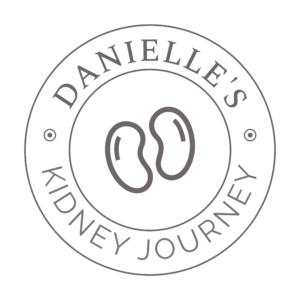Self-Absorption vs. Self-Attunement
Hi Everyone,
As I spend my last day in the hospital (yes, my labs have improved and I’m going home!), I’ve been thinking a lot about self-absorption—not just what it is, but where it comes from, and what pulls me out of it.
I’ve been listening to Elin Hilderbrand novels to entertain myself as I lay in my bed—beach reads set on Nantucket or Martha’s Vineyard. The characters are always inwardly a complete mess, but likeable, and while the plots can sometimes be unrealistic, the stories hold my attention. There’s a pattern: the main characters often start out self-absorbed. Over time, they become more self-aware, more outwardly focused, more loving toward the people they’ve hurt or misunderstood.
What’s interesting is that their self-absorption often stems from things like people-pleasing, arrogance, overwork, or years of disconnection from themselves. And it usually worsens when someone they love withholds information or shuts down, leaving them to assume the worst. They spiral inward, convinced the situation is about them—when often, it’s not.
That dynamic resonates.
I’ve heard that word—self-absorbed—used to describe me at times, even as I’ve been told I’m warm, intuitive, caring, and a good listener. The contradiction doesn’t confuse me. I’ve been learning about my light and shadow sides through my continuing education as a therapist and as a spiritual seeker. The light side of a person reflects their strengths, values, and gifts—the traits they consciously show the world. The shadow side holds the parts people try to hide or suppress like fears, insecurities, and unhelpful patterns.
But being sick is teaching me something I didn’t fully grasp before: how to tell the difference between self-absorption and self-attunement.
Self-attunement is about listening inward, without losing the ability to stay present with others. Self-absorption, on the other hand, is a loop of over-focusing on oneself—which can lead to behaviors like distraction, defensiveness, interpreting, assuming, and judging. Both are common human experiences. However, one brings connection. The other builds walls.
Illness has helped me reflect and clarify things. I’ve noticed how quickly I can shift into defensiveness, especially in my relationship with Ian. He’ll reveal something vulnerable, and I’ll take it personally. Or I’ll ask someone how they’re doing and somehow turn their answer into something about me. I don’t mean to—but it happens. And the tragic part is: self-absorption blocks the very things I want most—connection and love.
I wish illness wasn’t the reason I’m learning this lesson, but it is. I remember crying to my therapist, asking, “Why me?” And she said, lovingly but firmly, “Maybe it’s not about you.”
Those words cracked something open.
Yes, this disease is happening to me—but the meaning of it might not be about me at all. And in that space between sickness and better health, something surprising has been emerging: a deep desire to share the power of living donation and save lives by raising awareness. That feels like one of the most meaningful contributions I’ll ever make. And contribution, for me, is the opposite of self-absorption. It’s about turning outward.
I’ve been thinking about how our culture can make self-absorption feel like a survival strategy—especially in how it encourages individualism, success, and perfectionism, often values focused on self for survival. But in healing, when I’m on disability, I can’t really show markers of success in terms of income, and I am highly dependent on others, I’m realizing I need a different set of values.
Interdependence.
Humility and gratitude.
A willingness to ask for help and to look outside myself.
Lately, I’ve felt a rush of gratitude—for the food staff who walk me through my meal choices, for the woman who cleans my room and always asks how I’m doing with such sincerity, for the nurses and techs who sponge-bathe me gently, for the doctors who somehow make time to really listen.
It’s not just that I feel grateful—I tell them. I let them know. And in doing that, something in me softens.
I feel grateful for Brad, my donor, who checks in on me. His wife, Jillian, sent us a meal when I got home from my last hospital stay. Not only did Brad give me his kidney—he and his family continue to give. They walk alongside me in my desire to raise awareness, and I’m in awe of how much they give of themselves.
I’ve also watched my mentors who are advocates in raising awareness about kidney disease—Sharyn Kreitzer, Joy Paul, and Ron Paul—model that same generosity of spirit. Whether they’re being told no or facing a frustrating obstacle, they lead with kindness and appreciation. And somehow, it works. People want to help them. They build bridges. They create real impact. They inspire me.
I’m trying to carry that forward.
I put my phone down more when I’m with friends and family. I try to really listen. And when I’m distracted, I name it—so I don’t come off as distant or disinterested. It gives people a chance to hold me, too. And then I can hold space for them and be more present.
With Ian, we’ve shifted from quick defensiveness to deeper dialogue. It’s not perfect, but it’s better. The conversation moves from me to us. It takes longer. But it’s richer. More honest. More loving.
So yes, I still fall into self-absorbed patterns—I’m human. But this experience is teaching me how to return to others. To listen better. To communicate more clearly. To appreciate out loud. To advocate. To contribute.
And maybe that’s the quiet miracle: self-attunement and turning outward is, for me, the doorway to connection and love.
I want to admit, part of me worries that writing this piece might be a little self-absorbed (that’s my fear talking), but I feel compelled to share it. Because if it resonates with you—even a little—it’s worth sharing.
With love,
Danielle
Interested in becoming a living kidney donor? Learn more through DOVE, a nonprofit supporting veterans in need.



